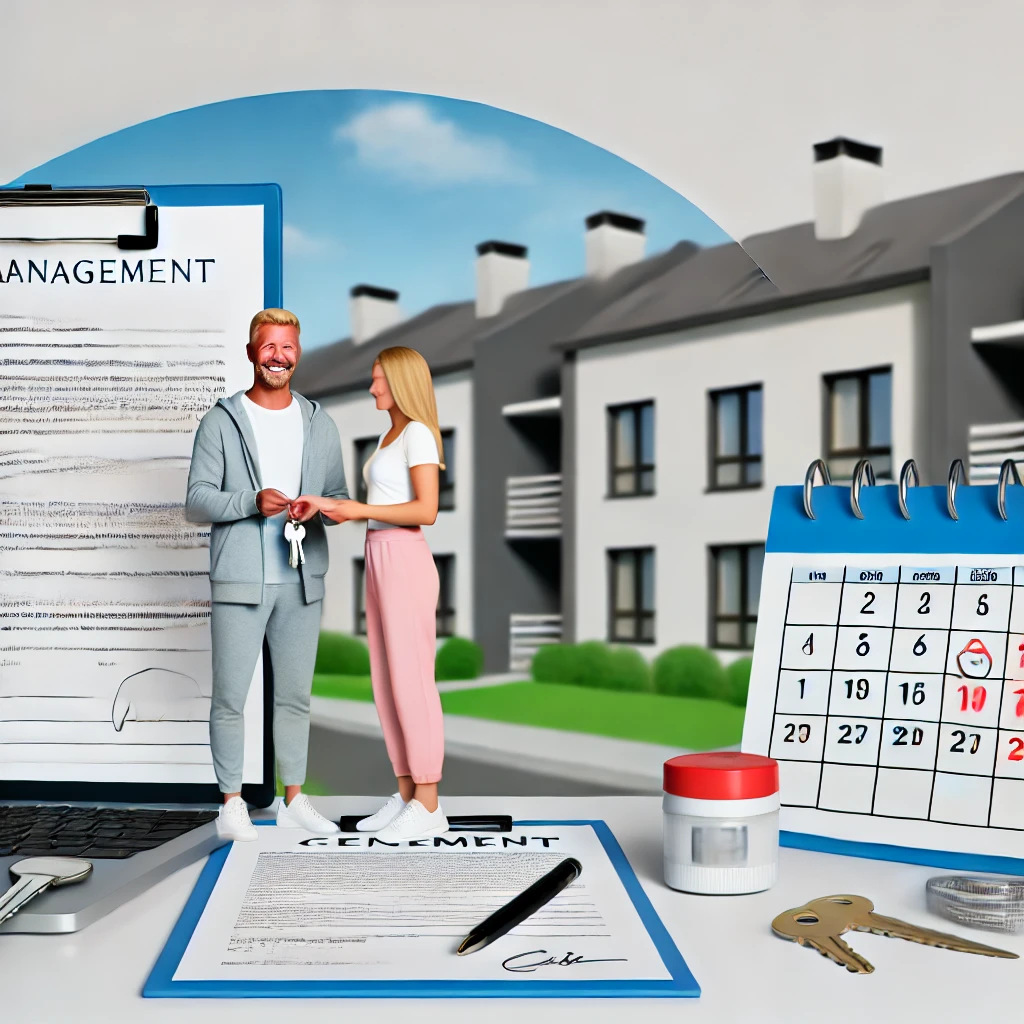Managing rental properties can be a rewarding yet challenging venture. Whether you own one rental unit or a portfolio of properties, the key to success lies in efficient and effective management. This guide will walk you through the essential steps of rental management, from tenant screening to property maintenance, ensuring your experience is as hassle-free as possible.
1. Tenant Screening: Your First Line of Defense
Tenant screening is the foundation of successful rental management. Finding reliable tenants can save you from headaches down the road, including late payments, property damage, and eviction proceedings.
Key Steps in Tenant Screening:
- Application Process: Start with a comprehensive rental application that collects essential details such as employment history, income, rental history, and references.
- Credit and Background Checks: A credit check will give you insight into the applicant’s financial responsibility, while a background check can reveal any past legal issues or criminal records.
- References: Contact previous landlords to verify the applicant’s rental history. Ask about their payment habits, any complaints, and whether they would rent to the tenant again.
- Interview: Conduct an in-person or virtual interview to gauge the applicant’s personality and whether they will be a good fit for your property.
Pro Tip: Set clear criteria for approval and be consistent in applying them to all applicants to avoid discrimination claims.
2. Lease Agreements: Setting Clear Expectations
A well-drafted lease agreement is crucial for establishing the terms of the rental relationship. This legal document should protect both you and your tenant by outlining the rights and responsibilities of each party.
Essential Components of a Lease Agreement:
- Rent Details: Include the amount of rent, due date, and acceptable payment methods.
- Security Deposit: Specify the amount, the conditions under which it may be withheld, and the process for its return.
- Maintenance Responsibilities: Clearly define who is responsible for what maintenance tasks, including lawn care, minor repairs, and major fixes.
- Rules and Regulations: Outline any property-specific rules, such as noise restrictions, pet policies, and parking regulations.
- Lease Termination: Detail the conditions under which the lease can be terminated early, either by the tenant or the landlord.
Pro Tip: Have a legal professional review your lease agreement to ensure it complies with local laws and adequately protects your interests.
3. Rent Collection: Streamlining the Process
Efficient rent collection is vital for maintaining cash flow and reducing financial stress. Implementing a streamlined process can help you avoid late payments and disputes.
Tips for Efficient Rent Collection:
- Online Payment Systems: Use an online payment platform that allows tenants to pay rent electronically. This method is convenient for tenants and ensures you receive payments on time.
- Automatic Reminders: Set up automated reminders a few days before the rent is due to prompt tenants to make their payments.
- Late Fees: Clearly outline the consequences of late payments in your lease agreement and enforce them consistently.
- Grace Period: Consider offering a short grace period to accommodate any unexpected delays in payment, but communicate that this is not an ongoing option.
Pro Tip: Regularly review your rent collection process and make adjustments as needed to ensure it remains efficient and tenant-friendly.
4. Property Maintenance: Keeping Your Investment in Top Shape
Regular maintenance is essential for preserving the value of your rental property and keeping tenants satisfied. A proactive approach to maintenance can prevent small issues from becoming costly repairs.
Maintenance Best Practices:
- Routine Inspections: Schedule regular inspections to identify and address any maintenance issues before they escalate. These inspections should include plumbing, electrical systems, HVAC, and structural components.
- Tenant Communication: Encourage tenants to report maintenance issues promptly. Provide clear instructions on how they can submit maintenance requests.
- Seasonal Maintenance: Perform seasonal tasks, such as cleaning gutters, servicing HVAC systems, and checking for roof leaks, to prevent weather-related damage.
- Emergency Repairs: Be prepared for emergencies by having a list of trusted contractors who can respond quickly to urgent repairs, such as burst pipes or electrical failures.
Pro Tip: Consider offering tenants incentives for maintaining the property, such as a small rent discount for reporting issues promptly or keeping the property in excellent condition.
5. Tenant Relations: Building a Positive Relationship
A positive landlord-tenant relationship can lead to longer tenancies, fewer disputes, and a better overall rental experience. Treat your tenants with respect and professionalism to foster a cooperative relationship.
Strategies for Positive Tenant Relations:
- Clear Communication: Maintain open lines of communication with your tenants. Be responsive to their needs and concerns.
- Respect Privacy: Always provide proper notice before entering the property, as required by law, and respect your tenants’ privacy.
- Address Issues Promptly: Whether it’s a maintenance request or a neighbor complaint, address issues quickly and efficiently.
- Renewal Incentives: Encourage good tenants to renew their lease by offering incentives, such as a minor rent reduction or an upgrade to the property.
Pro Tip: Regularly solicit feedback from your tenants to identify areas for improvement and demonstrate your commitment to their satisfaction.
6. Legal Compliance: Staying on the Right Side of the Law
Staying informed about local, state, and federal laws that govern rental properties is crucial for avoiding legal issues. These laws can cover everything from security deposits to eviction procedures.
Key Legal Considerations:
- Fair Housing Laws: Ensure your tenant screening process and rental policies comply with fair housing laws to avoid discrimination claims.
- Landlord-Tenant Laws: Familiarize yourself with landlord-tenant laws in your area, including requirements for notice periods, eviction procedures, and rent control regulations.
- Property Safety Standards: Maintain your property to meet safety standards, including working smoke detectors, proper locks, and hazard-free environments.
Pro Tip: Join a local landlord association or real estate group to stay updated on legal changes and access resources for managing your properties within the law.
Conclusion
Effective rental management requires a combination of careful planning, proactive maintenance, and positive tenant relations. By following the steps outlined in this guide, you can create a hassle-free rental management process that maximizes your property’s value and ensures a smooth, profitable experience. Remember, the key to success is consistency—apply these best practices regularly, and you’ll build a strong foundation for long-term success in the rental market.


